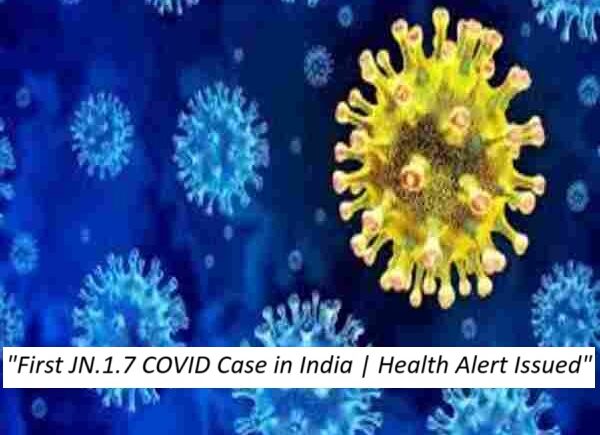Genome sequencing confirms first case of emerging subvariant; health officials increase surveillance across the country
India has reported its first confirmed case of the JN.1.7 COVID-19 variant in Kerala, prompting the Union Health Ministry to issue an alert and step up surveillance efforts nationwide. The case was detected through genome sequencing conducted by the Indian SARS-CoV-2 Genomics Consortium (INSACOG).
🔍 What is the JN.1.7 Variant?
- JN.1.7 is a sublineage of the JN.1 variant, which itself is derived from the Omicron family.
- The World Health Organization (WHO) has recently flagged the variant as “under monitoring” due to mutations in the spike protein that may allow for increased transmissibility.
- While early data does not indicate higher severity, public health officials stress the need for precaution, especially in vulnerable populations.
📍 First Case in Kerala
- The first Indian case was identified in a 65-year-old male from Thiruvananthapuram, Kerala.
- The individual had mild symptoms and has since recovered in home isolation.
- No international travel history was reported, indicating possible local transmission.
🛡️ Health Ministry’s Response
- The Union Health Ministry has:
- Advised state health departments to enhance genome sequencing.
- Issued an advisory to hospitals on managing flu-like symptoms and ensuring isolation protocols.
- Urged citizens to continue masking in crowded areas, especially in airports, hospitals, and public transport.
- No new lockdowns or travel advisories have been announced yet.
📈 Surveillance & Testing
- INSACOG labs have been directed to expedite sequencing of recent COVID-19 samples.
- The Kerala Health Department has intensified contact tracing and random testing in high-density areas.
🗣️ Expert Opinion
“JN.1.7 is not currently classified as a variant of concern, but we’re watching it closely for signs of increased transmission or immune escape,” said Dr. Rajeev Bahl, Director General, ICMR.
🧬 Symptoms to Watch For
Most symptoms remain similar to earlier Omicron variants, including:
- Fever
- Fatigue
- Mild cough
- Sore throat
- Nasal congestion
Health experts recommend seeking medical attention if symptoms persist or worsen beyond 3–4 days.
📢 Public Advisory
- Get vaccinated and stay updated on booster doses.
- Wear masks in public spaces and maintain hand hygiene.
- Avoid crowded indoor gatherings, especially for elderly and immunocompromised individuals.



